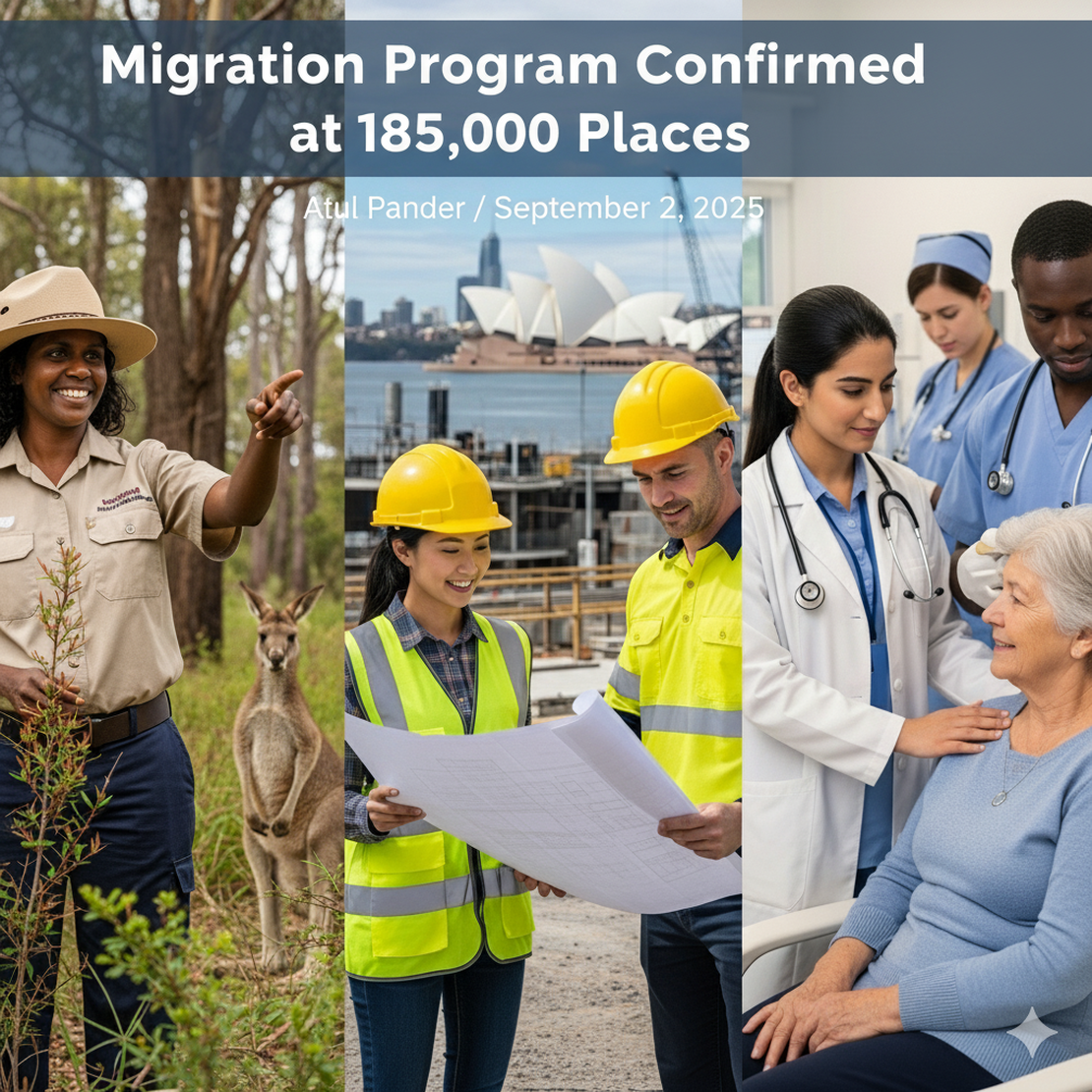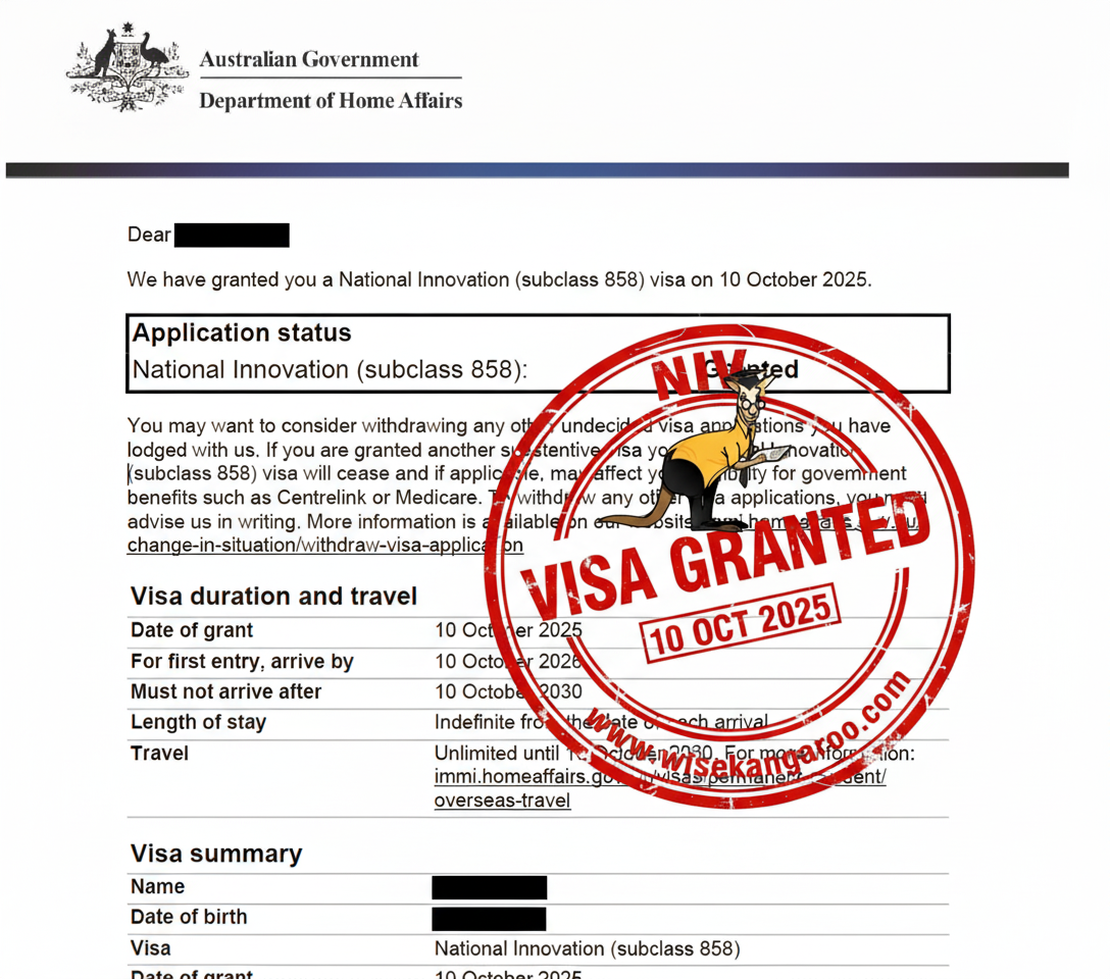Hey there! We wanted to share some of the latest announcements about Australia’s permanent Migration Program for 2023-24. As you might’ve heard, there has been some major changes to the Migration Program Planning Levels for this year as compared to last.
Key Takeaways
- New 2023-24 planning levels set at 190,000 places, a reduction of 5,000 from last year
- Skilled visa numbers for Subclass 189, Subclass 190 and Subclass 491 reduced slightly, GTI numbers maintained at 5,000
- No new allocations for BIIP program. Numbers cut to 0 for new applications
- Most family visa numbers maintained. Parent visa numbers boosted to 8,500
Introduction
The 2023-24 migration program has been set at 190,000 places. This represents a reduction of 5,000 places from last year’s levels. The program is divided into the Skill stream, Family stream, and Special Eligibility stream. This post discusses the allocation of visas across these streams and what these changes mean for prospective migrants.
Skilled Independent Visa Category
The 2023-24 permanent Migration Program has allocated 30,375 places for Skilled Independent visas. This is comparable to the 2022-23 program allocation of 32,100 places. The smaller planning level for this category in 2023-24 reflects the closure of the New Zealand stream of the subclass 189 (Skilled – Independent) visa from 1 July 2023.
Key Changes in Skilled Migration:
Subclass 189 (Skilled Independent):
- Reduced allocation due to New Zealand stream closure
- Competition remains high for remaining places
- Minimum points requirements likely to remain elevated
Subclass 190 (Skilled Nominated) & Subclass 491 (Regional Skilled Work):
- Slight reductions in overall allocations
- State and territory governments maintaining nomination programs
- Regional areas continue to be prioritized
Global Talent Visa (GTI):
- Planning level maintained at 5,000 places
- No cuts despite overall program reduction
- Demonstrates continued government commitment to attracting exceptional talent
- Competition expected to remain intense
We think this is really interesting and hope you do too! The maintenance of GTI levels suggests the government continues to prioritize attracting global talent despite overall program reductions.
Business Innovation and Investment Program (BIIP) Visa Category
The biggest shock has been felt by BIIP visa applicants. The Government has drastically reduced the planning level for the BIIP from 5,000 visas in 2022-23 to 1,900 visas for the 2023-24 permanent Migration Program.
Critical BIIP Changes:
Existing Applications:
- The 1,900 visas will be reserved for applicants who have already lodged applications
- No new BIIP applications will be accepted for the 2023-24 program year
- This represents a complete freeze on new business investment visa applications
Impact on Business Migration:
- Significant disruption to business migration pathways
- Investors may need to explore alternative visa options
- Potential shift towards state-sponsored business programs
Future Uncertainty:
- Unclear whether BIIP will resume in future program years
- Government reviewing business migration policies
- New business visa categories may be introduced
Family Stream Allocations
The Family stream has seen more stability compared to the Skill stream, with most categories maintaining their allocation levels.
Family Visa Breakdown:
Partner Visas:
- Allocation maintained at previous levels
- Continues to be the largest family visa category
- Processing times remain a concern for applicants
Parent Visas:
- Numbers boosted to 8,500 (increase from previous year)
- Addresses long waiting lists for parent migration
- Both contributory and non-contributory categories included
Child Visas:
- Allocation levels maintained
- Includes adoption and other child migration categories
Other Family:
- Small allocation for remaining relative categories
- Includes aged dependent relative and last remaining relative visas
Regional Migration Focus
The government continues to emphasize regional migration as a key strategy:
Regional Priorities:
Subclass 491 (Regional Skilled Work) Visa:
- Maintained allocation levels despite overall reductions
- Pathway to permanent residency through subclass 191
- Growing importance in migration strategy
Regional Benefits:
- Additional points for regional study and work
- Lower minimum points requirements
- Priority processing in some cases
State and Territory Involvement:
- Enhanced cooperation between federal and state governments
- Tailored programs to address local labor market needs
- Regional economic development focus
What This Means for You
For Skilled Migrants:
Points Competition:
- Higher competition expected across all skilled visa categories
- Importance of maximizing points through education, experience, and English proficiency
- Consider regional migration pathways
Strategic Planning:
- Early preparation essential given reduced allocations
- Professional advice more valuable than ever
- Timing of applications becomes critical
For Business Migrants:
BIIP Applicants:
- No new applications accepted for 2023-24
- Existing applicants should expect processing to continue
- Alternative pathways may need exploration
Future Planning:
- Monitor government announcements about potential new business visa categories
- Consider state-sponsored business programs
- Explore investor visa options in other countries
For Family Migrants:
Positive News:
- Most family visa allocations maintained
- Parent visa numbers increased
- Demonstrates government commitment to family reunification
Continued Challenges:
- Processing times remain lengthy for most categories
- Importance of complete and accurate applications
Looking Ahead: Migration Strategy
The government has indicated that a comprehensive Migration Strategy will be released later in 2023. This strategy is expected to address:
Anticipated Changes:
System Modernization:
- Digital transformation of migration processes
- Improved application processing systems
- Enhanced integrity measures
Labor Market Alignment:
- Better alignment between migration and economic needs
- Focus on addressing critical skill shortages
- Regional development priorities
Long-term Planning:
- Multi-year planning frameworks
- Predictable migration levels for stakeholders
- Performance measurement and evaluation systems
Skill Shortage Responses
The reduced migration levels come at a time when Australia faces significant skill shortages across multiple sectors:
Critical Shortage Areas:
Healthcare:
- Nursing and allied health professionals
- Medical specialists in regional areas
- Aged care workers
Technology:
- Software developers and engineers
- Cybersecurity professionals
- Data scientists and analysts
Trades and Construction:
- Electricians and plumbers
- Construction managers
- Automotive technicians
Agriculture:
- Farm managers and agricultural technicians
- Veterinarians
- Agricultural scientists
Professional Guidance More Important
With reduced allocations and increased competition, professional migration advice becomes even more critical:
Why Professional Help Matters:
Complex Requirements:
- Understanding of intricate visa requirements
- Knowledge of processing priorities and timelines
- Experience with document requirements
Strategic Advice:
- Choosing the optimal visa pathway
- Timing applications effectively
- Maximizing points and competitiveness
Risk Management:
- Avoiding costly application mistakes
- Understanding implications of policy changes
- Managing expectations realistically
Conclusion
The 2023-24 Migration Program planning levels reflect the government’s intention to manage migration levels while maintaining focus on economic needs and family reunification. The key themes are:
- Reduced overall levels with maintained quality focus
- Complete BIIP freeze signals major business migration policy shift
- GTI program stability demonstrates continued talent attraction priority
- Family reunification support through maintained and increased allocations
For prospective migrants, these changes underscore the importance of:
- Early and thorough preparation
- Professional migration advice
- Flexibility in visa pathway selection
- Understanding of competitive landscape
Stay Informed
Migration policy continues to evolve rapidly. The upcoming Migration Strategy will likely bring further changes to Australia’s immigration landscape. Stay connected with trusted migration professionals and official government sources for the latest updates.
At Wisekangaroo, we’re committed to helping our clients navigate these changing requirements and achieve their Australian migration goals. The reduced program levels make professional guidance more valuable than ever in ensuring your application stands out in an increasingly competitive environment.
For personalized advice about how these changes might affect your migration plans, contact our experienced team today.





